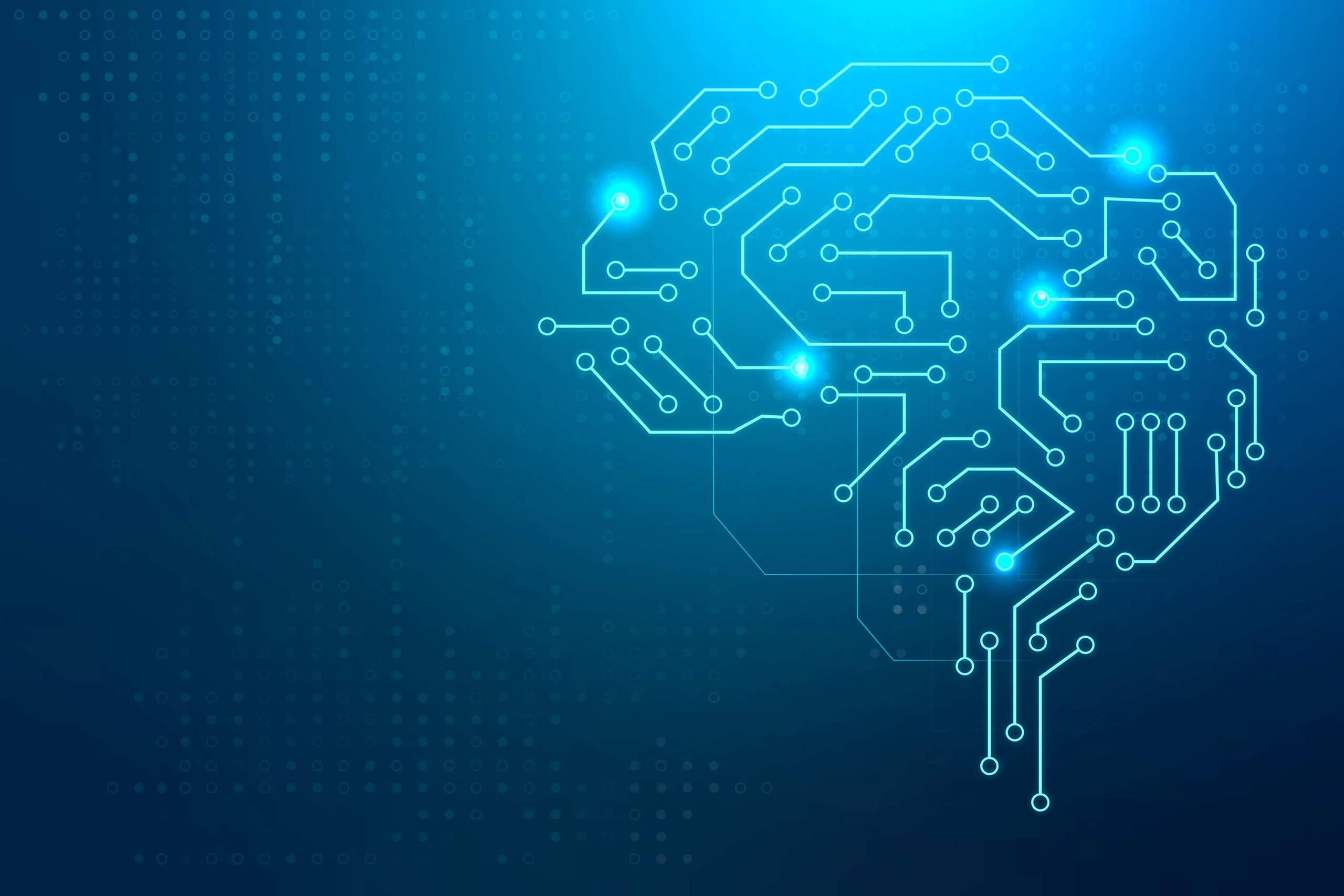Artificial Intelligence (AI) has emerged as a revolutionary technology that is changing the way we live and work. From autonomous vehicles to virtual assistants, AI is becoming an essential part of our daily lives. However, many people are still unaware of what AI is and how it works. This article will provide a comprehensive guide to AI, including its definition, history, types, applications, and the skills required to become an AI professional.
Introduction
Artificial Intelligence is a rapidly evolving field that involves the development of machines and algorithms that can perform tasks that typically require human intelligence, such as learning, reasoning, perception, and decision-making. AI has the potential to transform various industries, including healthcare, finance, manufacturing, and education.
In this article, we will cover the basics of AI, including its definition, history, types, applications, and the skills required to become an AI professional. We will also discuss the challenges and opportunities of AI and provide resources and tools to get started with AI.
What is Artificial Intelligence?
Artificial Intelligence refers to the simulation of human intelligence in machines that are programmed to think and act like humans. The goal of AI is to create intelligent machines that can perform tasks that typically require human intelligence, such as perception, reasoning, learning, and decision-making.
AI is an interdisciplinary field that includes various subfields, such as machine learning, deep learning, natural language processing, robotics, and automation. AI technologies can be classified into two broad categories: narrow or weak AI and general or strong AI.
History of Artificial Intelligence
The history of AI can be traced back to the 1950s when the term “Artificial Intelligence” was coined by John McCarthy, Marvin Minsky, Nathaniel Rochester, and Claude Shannon. The early days of AI were marked by the development of rule-based systems, expert systems, and symbolic reasoning.
In the 1980s, the field of AI faced a major setback due to the AI winter, a period of reduced funding and interest in AI research. However, the field regained momentum in the 1990s with the development of machine learning algorithms and neural networks.
In recent years, the availability of large amounts of data and advances in computing power has led to the emergence of deep learning, a subfield of machine learning that involves the use of neural networks with multiple layers.
Types of Artificial Intelligence
AI technologies can be classified into two broad categories: narrow or weak AI and general or strong AI. Narrow AI is designed to perform specific tasks, such as image recognition, language translation, and speech recognition. General AI, on the other hand, is capable of performing any intellectual task that a human can do.
Another classification of AI is based on the level of human-like intelligence that it exhibits. This classification includes three levels: reactive machines, limited memory, and self-aware.
Applications of Artificial Intelligence
AI has numerous applications in various industries, including healthcare, finance, manufacturing, and education. In healthcare, AI is used for disease diagnosis, drug discovery, and medical imaging analysis. In finance, AI is used for fraud detection, risk assessment, and algorithmic trading.
AI is used for personalized learning, intelligent tutoring systems, and educational data mining.
AI is also transforming the way we interact with technology, with the development of virtual assistants, chatbots, and smart speakers. These technologies use natural language processing and machine learning algorithms to understand and respond to human queries and commands.
Skills Required for AI Professionals
To become an AI professional, one needs to have a solid foundation in mathematics, statistics, computer science, and engineering. Some of the essential skills required for AI professionals include:
- Programming skills: AI professionals need to be proficient in programming languages such as Python, R, Java, and C++.
- Data analysis skills: AI professionals need to be able to collect, clean, and analyze large amounts of data using statistical methods and machine learning algorithms.
- Machine learning skills: AI professionals need to have a deep understanding of machine learning algorithms such as decision trees, random forests, support vector machines, and neural networks.
- Deep learning skills: AI professionals need to have expertise in deep learning frameworks such as TensorFlow, Keras, and PyTorch.
- Natural language processing skills: AI professionals need to have a solid understanding of natural language processing techniques such as sentiment analysis, named entity recognition, and topic modeling.
- Robotics and automation skills: AI professionals need to have a good understanding of robotics and automation technologies, including computer vision, motion planning, and control systems.
Machine Learning and Deep Learning
Machine learning is a subfield of AI that involves the development of algorithms that can learn from data and make predictions or decisions. Machine learning algorithms can be classified into three categories: supervised learning, unsupervised learning, and reinforcement learning.
Deep learning is a subset of machine learning that involves the use of neural networks with multiple layers to perform tasks such as image and speech recognition, natural language processing, and game playing. Deep learning has achieved state-of-the-art results in various fields, including computer vision, natural language processing, and speech recognition.
Natural Language Processing
Natural Language Processing (NLP) is a subfield of AI that involves the development of algorithms that can understand and generate human language. NLP has numerous applications, including machine translation, sentiment analysis, text summarization, and chatbots.
Recent advances in NLP have led to the development of pre-trained language models such as GPT-3, which can generate human-like text with high accuracy.
Robotics and Automation
Robotics and automation technologies are becoming an essential part of various industries, including manufacturing, healthcare, and logistics. AI plays a critical role in robotics and automation by enabling machines to perceive, reason, and act in the physical world.
AI-powered robots can perform tasks such as assembly, packaging, and inspection with high precision and accuracy. They can also be used in hazardous environments such as nuclear power plants, mines, and oil rigs.
AI Ethics and Bias
AI has the potential to transform various industries and improve our lives in numerous ways. However, AI also poses ethical challenges, including bias, privacy, and accountability.
AI systems can be biased if they are trained on biased data or if their algorithms reflect the biases of their creators. Bias in AI can lead to unfair treatment of individuals or groups based on their race, gender, or other characteristics.
To address these ethical challenges, AI professionals need to be aware of the potential biases in their algorithms and take steps to mitigate them.
AI and Future of Work
AI is expected to have a significant impact on the future of work, with some jobs becoming automated and new jobs emerging. AI-powered robots and machines can perform routine and repetitive tasks with high precision and accuracy, leading to increased productivity and efficiency.
However, AI also poses a threat to some jobs, particularly those that involve routine and repetitive tasks. AI professionals need to be aware of the potential impact of AI on the job market and work with policymakers and stakeholders to create a workforce that is prepared for the future.
AI Education and Resources
As AI continues to transform various industries and become a part of our daily lives, the demand for AI professionals is expected to grow. Fortunately, there are numerous resources available for individuals who want to learn more about AI and develop their skills.
Some of the resources for learning AI include:
- Online courses and tutorials: There are numerous online courses and tutorials available for individuals who want to learn AI. Some of the popular platforms for AI education include Coursera, edX, and Udacity.
- AI communities and forums: There are numerous online communities and forums dedicated to AI, where individuals can learn from experts and connect with other learners.
- AI books and publications: There are numerous books and publications available on AI, including textbooks, research papers, and popular science books.
- AI conferences and events: There are numerous AI conferences and events held globally, where individuals can learn from experts and network with other professionals in the field.
Conclusion
Artificial Intelligence is a rapidly growing field that has the potential to transform various industries and improve our lives in numerous ways. AI professionals are in high demand, and there are numerous resources available for individuals who want to learn AI and develop their skills.
As AI continues to evolve, it is essential to address the ethical challenges posed by AI, including bias, privacy, and accountability. AI professionals need to be aware of these challenges and work to create AI systems that are fair, transparent, and accountable.
Overall, AI has the potential to create a better future for everyone, and it is up to us to use this technology in a responsible and ethical manner.
FAQs
- What is artificial intelligence? Artificial Intelligence (AI) is a subfield of computer science that involves the development of algorithms that can perform tasks that typically require human intelligence, such as perception, reasoning, and decision-making.
- What are some applications of AI? AI has numerous applications, including natural language processing, machine learning, robotics, and automation.
- What skills are required for AI professionals? AI professionals require skills in programming, data analysis, machine learning, deep learning, natural language processing, and robotics and automation.
- What is deep learning? Deep learning is a subset of machine learning that involves the use of neural networks with multiple layers to perform tasks such as image and speech recognition, natural language processing, and game playing.
- What are some resources for learning AI? Some resources for learning AI include online courses and tutorials, AI communities and forums, AI books and publications, and AI conferences and events.




